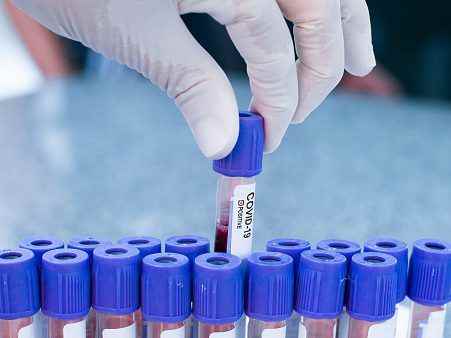London’s COVID-19 wastewater spike should make officials take note, one Western University researcher says, as disease activity in the community reaches highs not seen in months.

London’s COVID-19 wastewater spike should make officials take note, one Western University researcher says, as disease activity in the community reaches highs not seen in months.
The COVID levels showing up in London’s sewage recently are at the same level as the sixth wave in March and April, said Chris DeGroot, an assistant professor of mechanical and materials engineering involved in the wastewater testing program.
“We’ve noticed an increase in wastewater (viral) levels since June 30. It’s risen quite dramatically from what we were seeing in mid-June, when the levels were relatively low,” DeGroot said.
Tea BA.4 and BA.5 subvariants of the Omicron strain are key culprits in the recent wastewater spike provincewide, he said. London’s top doctor said last week BA.5 has become the dominant form of COVID-19 circulating in the area during the last two weeks.
Wastewater data is now a more complete indicator of the scale of COVID-19 spread in the community since the province severely restricted lab-based test eligibility during the Omicron-fuelled fifth wave in December and January, DeGroot said. There is no public health mechanism to report the results of rapid tests either, he said.
Given the signals showing up in London’s wastewater – and provincewide – DeGroot said government and public health officials should take action.
“The wastewater signal typically goes up in advance of hospitalizations,” DeGroot said Monday.
“The hope was always that we would be able to respond to the wastewater data and potentially react with different measures to protect the public. Mask mandates were lifted when case counts were relatively low. . . . Now that we’re seeing a return to higher levels, it would be reasonable to reconsider some of those measures.”
While the summer resurgence of COVID cases is not a reason to panic or push for sweeping lockdown-type policies, it is important to monitor the burgeoning seventh wave closely, said Saverio Stranges, chair of epidemiology and biostatistics at Western’s Schulich school of medicine and dentistry .
“Based on what we have seen in other western European countries experiencing this seventh wave a bit earlier than Canada, there has really not been the same kind of crisis in terms of hospital capacity that has been seen in the past,” Stranges said Monday. “The good news is the vast majority of people who are infected by the new subvariants seem to have a mild course of disease which is mostly upper respiratory symptoms, and not really impacting the lungs.”
However, the larger the percentage of the population the highly contagious subvariants infect, the more likely the virus is to reach vulnerable people who may be hospitalized or die because of it, Stranges said.
People who are unvaccinated, elderly or have health conditions that make them vulnerable to severe outcomes from COVID-19 should be particularly vigilant as the seventh wave rolls though, Stranges said. The general public should consider wearing masks again, particularly in crowded indoor public spaces, he added.

The Western team analyzes wastewater samples from London’s five sewage treatment facilities. While he would not disclose the COVID testing results from individual facilities, DeGroot said there are few disparities between the five wastewater plants.
The Western team has been testing wastewater for the virus since late 2020, but expanded the program in early 2021 and began analyzing samples for variants last fall.
Western and other Ontario research teams are tracking the virus’s genetic material in wastewater from communities across the province.
The Western team has provincial funding for its wastewater collection and analysis until September and is hoping the program will be extended, DeGroot said.
The Middlesex-London Health Unit reported 111 new cases and one additional death Monday, totals that reflect Friday, Saturday and Sunday’s counts. The latest death was a woman in her 90s with no links to a long-term care or retirement home.
London Health Sciences Center reported Monday it had 15 COVID-19 patients in hospital, a decrease of 10 from Friday. Five or fewer are in intensive care.
Of the 15 patients, six have been admitted to hospital for other reasons, but have also tested positive for the virus.
-

Oct. 2020: City sewage samples flush up early indicators of coronavirus spread
-

July 2020: London wastewater tests showed no trace of COVID-19
-

Dec. 2021: Omicron not showing up in wastewater like Delta, despite surging cases
-

April 2022: Inside the London biosafety lab where COVID is studied
-

May 2022: COVID’s sixth wave ‘clearly’ receding in London area: top doctor
